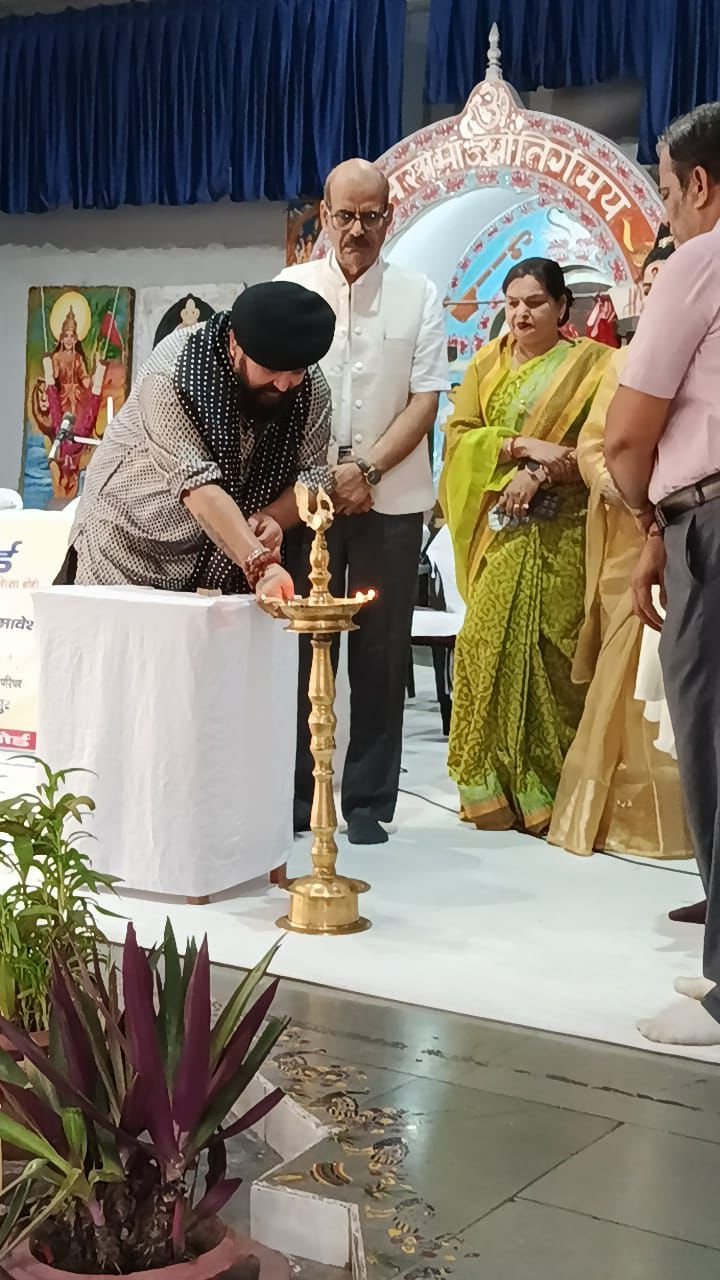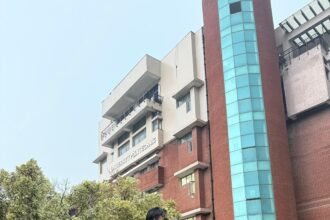A historic educational conference was held today at B.N.S.D. Shiksha Niketan, Kanpur, under the aegis of the Bhartiya Shiksha Board (BSB) — a national education board constituted by the Government of India.
The event witnessed the enthusiastic participation of hundreds of school managers, principals, and senior educationists from across
Bhartiya Shiksha Board: A Paradigm Shift in Education
The Bhartiya Shiksha Board (BSB) has been established to integrate India’s ancient civilizational wisdom with modern educational methods. Its objective is to shape a generation that is intellectually sharp, culturally grounded, morally strong, and physically confident.
The Board’s curriculum has been developed through contributions from leading educationists, scholars, and policymakers nationwide. Aligned with the National Education Policy (NEP), it aims to bring about a genuine educational renaissance by blending traditional knowledge with contemporary pedagogy. The Government of India has entrusted Patanjali Yogpeeth with operational responsibility, recognizing its longstanding contribution to reviving India’s knowledge heritage.
Dr. N.P. Singh (IAS, Retd.) — Chairman, Bhartiya Shiksha Board
Delivering the keynote address, Dr. N.P. Singh (IAS, Retd.), Chairman of Bhartiya Shiksha Board, described BSB as a visionary institution designed for the 21st century.
“For nearly 190 years, India’s education system has functioned on Macaulay’s colonial blueprint, whose aim was to create followers, not leaders. This limited generations of students to job-seeking rather than nation-building. But no civilization has ever progressed merely by producing followers — only those societies flourish that cultivate and promote leadership.”
Dr. Singh strongly emphasized:
“The Bhartiya Shiksha Board is the Board of the 21st Century. It will empower teachers with the tools, frameworks, and roadmaps to nurture entrepreneurs, innovators, and leaders who can shape the destiny of the nation. This is not just an education board; it is a national vision board for the future of Bharat.”
He also drew attention to the cultural and social gaps modern education had left unaddressed:
“For too long, our education system has failed to give womanhood the reverence that Indian civilization has traditionally bestowed. BSB bridges this gap. Its curriculum nurtures strong, confident women and respectful, value-driven men, restoring the civilizational balance that is essential for a harmonious and progressive society.”
Dr. Singh concluded by saying that the Bhartiya Shiksha Board will shape universal citizens — individuals who are global in outlook but deeply rooted in Indian values, capable of leading with integrity and vision.
Wing Commander Pushkal Vijay Dwivedi (Retd.) — Director General, Bhartiya Shiksha Anusandhan Parishad; “Father of Self Defence Science”
One of the most crisp and objective addresses came from Wing Commander Pushkal Vijay Dwivedi (Retd.), Director General, Bhartiya Shiksha Anusandhan Parishad, and widely regarded as the “Father of Self Defence Science” in India.
A distinguished veteran of the Indian Air Force and an educational reformer, Wing Commander Dwivedi has pioneered the integration of Self Defence Science (Atmaraksha Vigyan) into mainstream education. His work has been formally commended in writing by Defence Minister Rajnath Singh.
Dwivedi identified a deep structural gap in contemporary education:
“Modern education may produce capable professionals, but parents are losing their children emotionally and culturally. The system imparts fragmented information, not integrated personality development. We have created job-seekers but not resilient, value-driven citizens.”
He explained how the Bhartiya Shiksha Board is bridging this gap through a multidimensional curriculum:
“For the first time in Indian history, Self Defence Science has been introduced as a formal subject. This landmark step fulfils two crucial objectives simultaneously—reviving Bharat’s age-old tradition of martial preparedness and self-protection, and addressing modern needs of personal safety, discipline, and national security awareness. This initiative will nurture a generation that is confident, disciplined, courageous, and aware of its civilizational responsibility.”
He further elaborated that education must go beyond classrooms:
“An education system that only produces employees is incomplete. We need a system that creates job creators, protectors, thinkers, and leaders. Self Defence Science is not just about physical combat; it is about psychological resilience, leadership, and cultural confidence. This is what Bhartiya Shiksha Board is institutionalizing.”
His address received strong applause from principals and educationists, many of whom stated that such subjects were long overdue. The inclusion of Self Defence Science was widely seen as a turning point in India’s educational journey.
Chief Guest: District Magistrate Kanpur — Shri J.P. Singh
District Magistrate Shri J.P. Singh, Chief Guest of the event, praised this transformative initiative:
“Recognizing the need for an educational renaissance, the Government has established the Bhartiya Shiksha Board. Its mission is to deliver modern education within the framework of India’s ancient knowledge systems. I have high expectations from this Board’s vision and quality. This initiative can help position India as a knowledge-based global superpower.”
District Inspector of Schools (DIOS) Kanpur — Shri Santosh Roy
District Inspector of Schools, Shri Santosh Roy, emphasized the shared responsibility of all stakeholders:
“Education determines the destiny of a nation. Both the Central and State Governments are working seriously to reform and strengthen education. But this mission requires the active support of school managers, principals, teachers, and society. Each of us must play our role sincerely to bring this change to life.”
Broad Participation of Eminent Educationists
The conference saw wide participation from prominent educationists and dignitaries, including Gaurav Pandey, Jaya Shukla, social worker Meena Dwivedi, Shakti Shukla, Kusum Dwivedi, Pinky Sahu, Rajneesh Sinha from Patanjali Yogpeeth, and municipal councillor Neelam Shukla. Their presence added gravitas to the event, underscoring the broad consensus on the need for educational transformation.
Conclusion
The Kanpur conference made it clear that India’s education system is at the cusp of a civilizational shift. Through the Bhartiya Shiksha Board, India is not merely reforming syllabi; it is redefining the very purpose of education—from producing followers to nurturing leaders, from fragmented learning to holistic growth, from gender imbalance to empowered harmony, and from passive citizens to self-reliant, value-driven individuals.
The visionary leadership of Dr. N.P. Singh, the pioneering mission of Wing Commander Pushkal Vijay Dwivedi, and the strong support of administrative and educational authorities together signal the emergence of a new educational era for Bharat.






